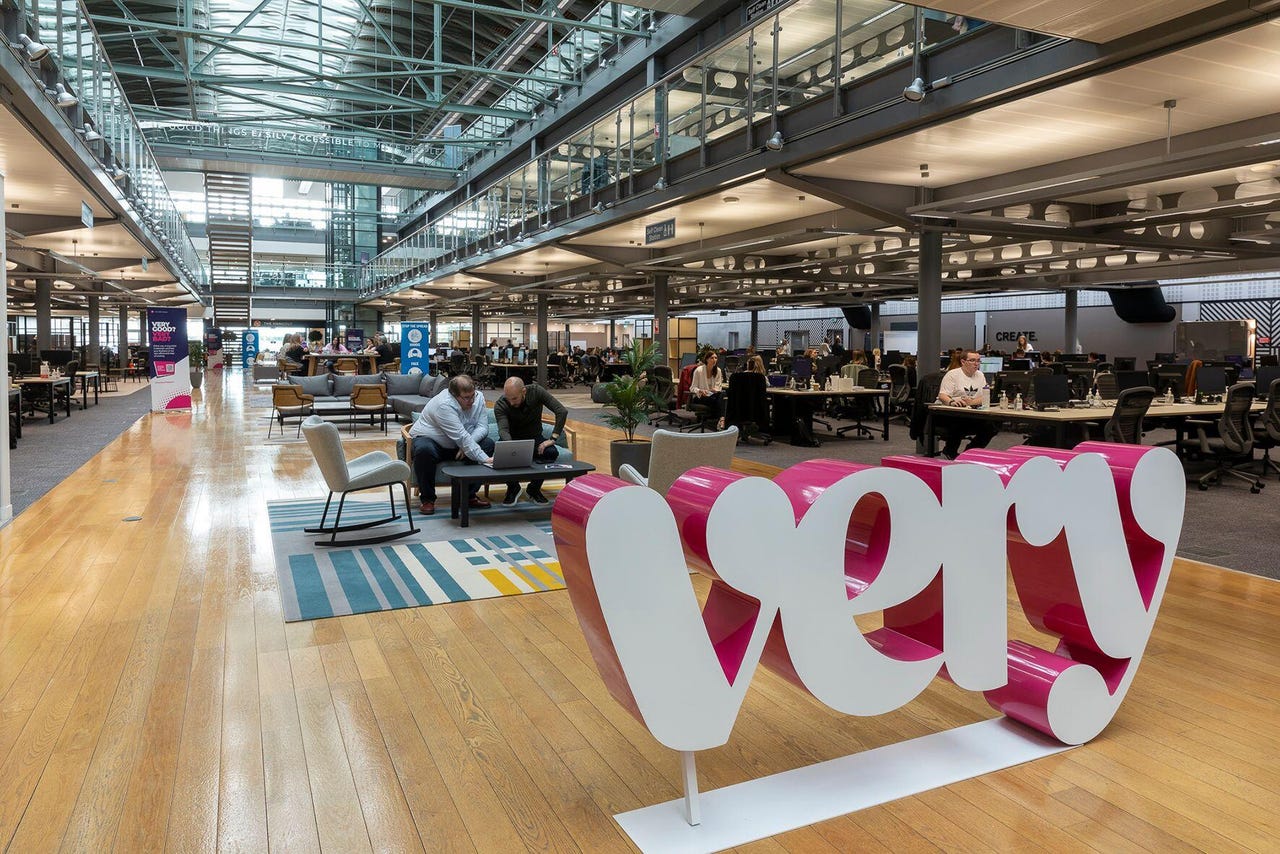































 Image: Very Group
Image: Very Group When embarking on a digital transformation project, it pays to have great data. For online retailer Very.co.uk, leveraging a company heritage dating back to 1890 has been instrumental in establishing what it claims to be one of the oldest and richest customer-focused data sets in the country.
Very has undergone numerous and significant transformations since its inception more than 100 years ago. Serving as a catalogue business for most of its existence under the Littlewoods brand, the company pivoted to online in 2009 and rebranded itself Very in an attempt to reinvent the business, following years of financial losses.
Since then, Very has put data at the heart of everything it does. In doing so, the company has been able to leverage decades-worth of customer, financial services and inventory data, delivery records and payments information.
Digital transformation projects are about driving fundamental change across customer experience, tech and business culture. This ZDNet special report brings you the latest trends and insights you need to succeed.
Read now"The work that we're doing -it's pretty transformational," says Steve Pimblett, chief data officer (CDO) at Very. "We're not just building a warehouse and moving a bit of data around -we're fully transforming, and we do that in a customer-centric way with technology and data at the heart of it."
SEE: What is digital transformation? Everything you need to know about how technology is changing business
In 2022, Very is a pure-play online business providing both retail offerings and financial services with its buy now, pay later (BNPL) service, Very Pay. Its paper product catalogues, which for decades had adorned coffee tables in British homes, are long gone. "It's all digitized and online," Pimblett tells . Even the warehouses are fully automated, he adds.
"If you think of that fantastically rich data asset, with every item that somebody has individually purchased, the delivery information, stocking information, financial services information of credit, risk, fraud, payments, and combine that with the digital experience, we've got this fantastic opportunity to create value from that data set to drive examples of better customer-centric marketing and digital customer experience."
Needless to say, wrangling such vast volumes of data -which sit across 11 complex business domains with hundreds of systems and hundreds of thousands of assets -and creating value from it is no small task. After all, data, no matter how vast or valuable, is useless if it cannot be collected, categorised and interpreted meaningfully.
This is why Very has turned to Alation, a data catalogue and governance platform that allows businesses to organise, index and understand their data assets, while providing governance tools to help maintain stewardship and regulatory compliance.
Using Alation to pull together and interpret the data stored across its various business units has enabled Very to create a holistic, 360-degree view of the customer. This provides value for departments across the organisation by highlighting what an individual customer needs at what point in their online shopping journey.
SEE: Digital transformation in 2022 and beyond: These are the key trends
"If you think about [a customer's] visit experience, their basket experience, their order experience, delivery experience, monthly statements, interest payments... All [of these] tie together in an asset that could be leveraged to create better experiences for customers," Pimblett explains.
"That's what we're starting to do, and then enriching that view with more predictive models."
One of the most valuable things Alation has allowed Very to do is build a Google-style single search engine that makes it easy for employees to access the data they need.
"We've got about 3,500 people who want to make better decisions through the trusted data, products and services that we build," says Pimblett.
"If someone types the word 'customer' in, [they can see] what data we've got about customers, what articles we've got about customers, who the stewards of that customer data are, what segmentation we've got linked to customers...It's a really immersive experience, to allow people to build up knowledge of the data that we have, rather than being in their own silos and creating their own ring-fenced datasets."
Of course, technology is just one part of the digital transformation journey. Equally important is a change in culture, and often, successfully rallying workers to embrace radical change is what makes-or-breaks a successful digitisation project.
SEE: Digital transformation strategy: 6 ways to keep your project on track
Acknowledging previous successes resulting from change can be a powerful tool in winning sentiment, says Pimblett.
"One of the most powerful things we did was we wrote a three-year vision statement looking back on the success of the last three years and [the way we] transformed," he explains.
"We've even done an exercise where we step through each year of the journey and visualised ourselves through that experience, both in terms of how it's transformed for the customer, but probably the most importantly, culturally and for our colleagues...That was hugely powerful."
Very's concerted digital transformation efforts have paid off. In 2014, five years after launching very.co.uk, the company recorded record profits -following a decade of losses as an ageing business. In May 2022, the company took home awards for Best Retailer and Best Place to Work in the 2022 Retail Week Awards.
Again, Pimblett says it's the quality and cultivation of culture -rather than the choice of tech a business uses -that drives great outcomes for customers and company employees.
"There so many different technologies you can combine, so many innovative solutions, but having a culture where your teams want to accept change, embrace new technologies, embrace new challenges...That's the hardest bit of it really, not the tech."
 Etiquetas calientes:
negocio
Transformación Digital
Etiquetas calientes:
negocio
Transformación Digital